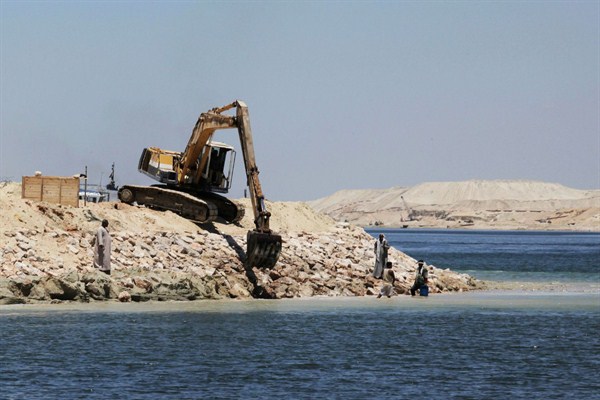Billboards in New York’s Times Square advertise it as “Egypt’s gift to the world.” An expansion of the Suez Canal, completed in just a year—at President Abdel Fattah el-Sisi’s request—is set to formally open Thursday, with a party estimated to cost $30 million and full of foreign dignitaries. Those ads in Times Square, which have also appeared in London and, curiously, in a special cover wrap of some editions of The Economist, claim that “Egypt boosts the world economy.” How? By allowing two-way shipping traffic that, the Suez Canal Authority says, will cut transit time by seven hours.
But plenty of economists and shipping experts are already raising questions. “From a shipping industry point of view, this initiative to expand the Suez canal was a bit of a surprise,” Ralph Leszczynski, Singapore-based head of research at Genoese shipbroker Banchero Costa & Co, told Bloomberg. “There was no pressing need or requests for this as far as I’m aware.”
Ahmed Kamaly, an economist at the American University in Cairo, told Reuters that the government’s rosy projections of additional revenue—$13.23 billion annually by 2023, a huge spike from last year’s $5.3 billion—were “wishful thinking.” Kamaly said that “There was no viability study done, or known of, to assess the viability of the project.”

